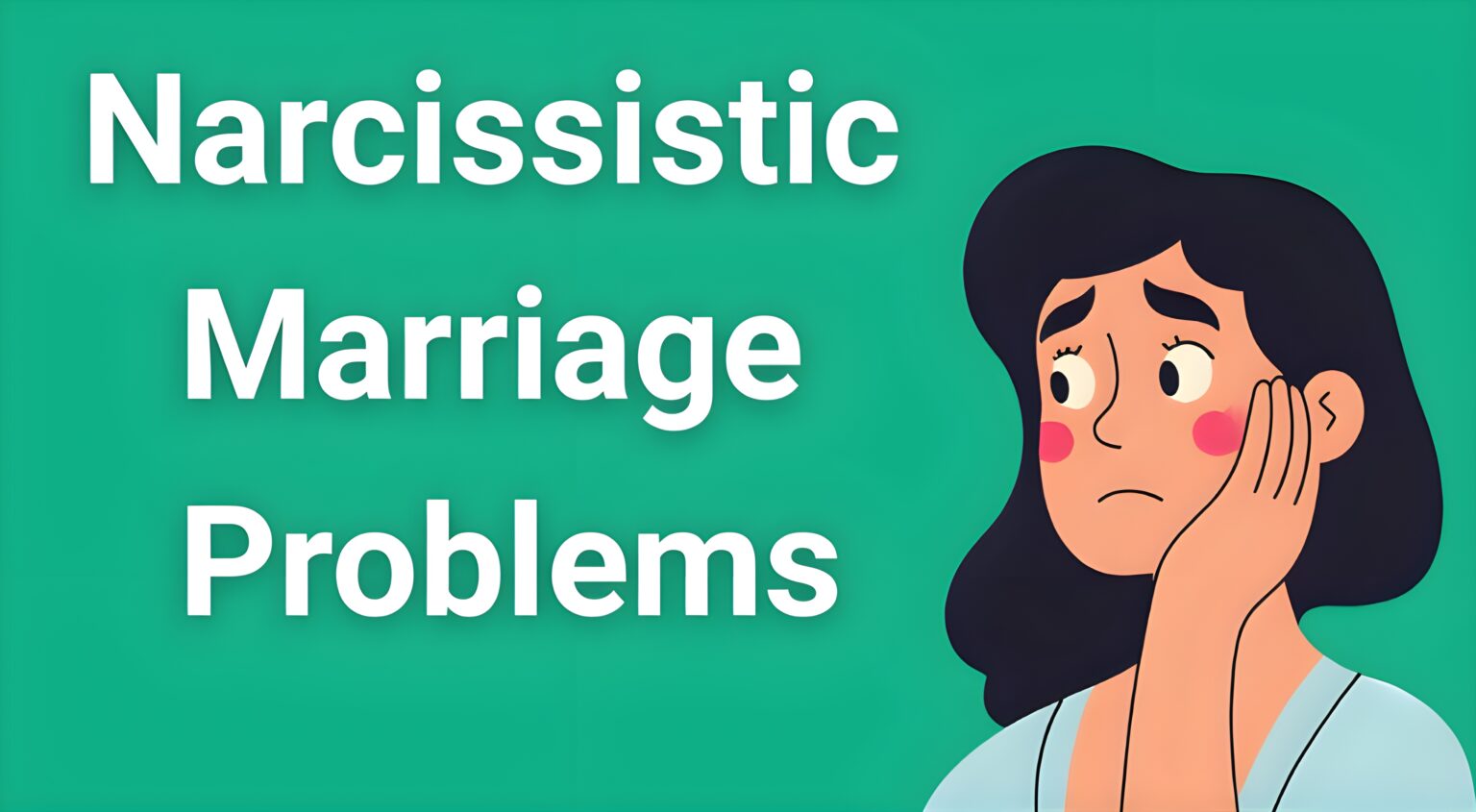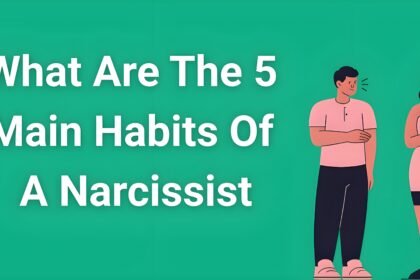Stop questioning your sanity. If you’re reading this, something in your marriage feels deeply wrong, and you’re desperately seeking answers. You’re walking on eggshells, apologizing for things that aren’t your fault, and wondering if you’re somehow the problem. The truth is, you’re likely dealing with narcissistic marriage problems that are far more common than you realize.
That sinking feeling in your stomach every morning? The way your partner’s mood dictates the entire household’s emotional temperature? The constant confusion about what’s real and what isn’t? These aren’t signs that you’re “too sensitive” or “overreacting” – they’re red flags pointing to serious issues in your relationship dynamic.
Understanding narcissistic marriage problems isn’t just about putting a label on difficult behavior. It’s about recognizing patterns that can help you make sense of the chaos, validate your experiences, and most importantly, find a path forward that prioritizes your mental health and wellbeing.
What Exactly Are Narcissistic Marriage Problems?
Narcissistic marriage problems occur when one spouse displays a consistent pattern of narcissistic behaviors that create an unhealthy, imbalanced relationship dynamic. These aren’t occasional selfish moments we all have – they’re pervasive patterns that fundamentally alter how the marriage functions.
The narcissistic partner typically exhibits an inflated sense of self-importance, an insatiable need for admiration, and a profound lack of empathy for their spouse’s feelings and needs. This creates a relationship where one person’s emotional and practical needs consistently take precedence, while the other partner’s needs are minimized, dismissed, or entirely ignored.
What makes narcissistic marriage problems particularly challenging is that they often develop gradually. The charming, attentive person you fell in love with may have slowly revealed controlling, manipulative, or emotionally abusive behaviors only after you were already committed. This gradual shift can leave you questioning your own perceptions and wondering if you’re remembering things correctly.
The psychological impact of these relationship dynamics extends far beyond typical marital disagreements. Partners of narcissistic individuals often report feeling emotionally drained, confused about reality, and increasingly isolated from friends and family. The constant emotional turmoil can lead to anxiety, depression, and a profound loss of self-identity.
The 8 Most Destructive Narcissistic Marriage Problems
Understanding specific patterns can help you identify what you’re experiencing and realize that you’re not imagining these problems. Here are the most common and damaging issues that arise in marriages with narcissistic dynamics:
1. Constant Gaslighting and Reality Distortion
Perhaps the most insidious of all narcissistic marriage problems is gaslighting – a form of psychological manipulation where your partner systematically makes you question your own memory, perceptions, and judgment.
In a narcissistic marriage, this might look like your spouse insisting they never said something you clearly remember them saying, or claiming you’re “misremembering” events that happened just days ago. They might tell you that your emotional reactions are “crazy” or “over the top,” even when they’re completely normal responses to their hurtful behavior.
Over time, this constant reality distortion erodes your confidence in your own perceptions. You might find yourself constantly second-guessing your memory, apologizing for reactions that were actually justified, or feeling like you’re “going crazy.” The narcissistic partner maintains control by keeping you off-balance and unsure of what’s real.
This form of manipulation is particularly damaging because it attacks your fundamental ability to trust yourself. When you can’t trust your own perceptions, you become increasingly dependent on your partner’s version of reality – which is exactly what they want.
2. Extreme Control and Dominance
Narcissistic individuals have an overwhelming need to control their environment, including their spouse’s behavior, decisions, and even thoughts. This control can manifest in numerous ways, from obvious restrictions to subtle manipulations that are harder to recognize.
You might notice that your spouse insists on making all major decisions without consulting you, controls the finances even when you contribute equally, or dictates how you spend your time and who you spend it with. They may monitor your communications, show up unexpectedly when you’re with friends, or create conflict whenever you try to maintain relationships outside the marriage.
The control often extends to emotional manipulation as well. They might use guilt, threats, or emotional withdrawal to get their way. Phrases like “If you really loved me, you would…” or “I guess I just can’t count on you for anything” are common tools used to manipulate you into compliance.
This level of control is exhausting and dehumanizing. It reduces you to an extension of their will rather than recognizing you as an independent person with your own thoughts, feelings, and desires. Over time, you might find yourself automatically deferring to their preferences or struggling to remember what you actually want in various situations.
3. Complete Lack of Empathy
One of the most heartbreaking aspects of narcissistic marriage problems is the narcissistic partner’s inability or unwillingness to genuinely care about their spouse’s emotional experience. This lack of empathy shows up in both big and small ways throughout the relationship.
When you’re upset, hurt, or struggling, a narcissistic spouse often responds with indifference, irritation, or by immediately redirecting the conversation back to themselves. They might say things like “You’re being too sensitive” or “Why do you always have to be so dramatic?” instead of offering comfort or trying to understand your perspective.
During difficult times – illness, family crises, work stress, or personal struggles – you might find yourself dealing with these challenges largely alone, even though you’re married. Your spouse might view your emotional needs as an inconvenience or burden, rather than as natural parts of being in an intimate relationship.
This emotional neglect is particularly painful because marriage is supposed to be a partnership where both people support each other through life’s ups and downs. When one partner consistently fails to provide emotional support while expecting it for themselves, it creates a profound sense of loneliness and disconnection.
4. Manipulation Through Intermittent Reinforcement
Perhaps one of the most confusing aspects of narcissistic marriage problems is the unpredictable pattern of kindness and cruelty. Your spouse might be charming, loving, and attentive one day, then cold, critical, and rejecting the next, with no clear explanation for the dramatic shift.
This intermittent reinforcement – occasional positive attention mixed with frequent negative treatment – creates a psychological bond similar to addiction. You find yourself constantly trying to figure out what you can do to bring back the “good” version of your spouse, often blaming yourself when they treat you poorly.
The unpredictability keeps you walking on eggshells, constantly monitoring their mood and adjusting your behavior accordingly. You might find yourself celebrating small kindnesses that would be considered basic courtesy in a healthy relationship, simply because you’ve become accustomed to much worse treatment.
This cycle is particularly damaging because it prevents you from maintaining consistent boundaries or making clear decisions about the relationship. Just when you’re ready to address serious problems, they might have a period of being wonderful, making you question whether things are really that bad.
5. Isolation from Support Systems
Narcissistic individuals often work systematically to isolate their partners from friends, family, and other sources of support. This isolation serves multiple purposes: it reduces outside perspectives that might help you recognize unhealthy patterns, increases your dependence on the narcissistic partner, and eliminates potential threats to their control.
The isolation might start subtly – negative comments about your friends or family, scheduling conflicts that prevent you from attending social events, or creating drama around visits with loved ones. Over time, it often escalates to more direct interference, such as forbidding contact with certain people or creating such unpleasant scenes that you eventually stop trying to maintain outside relationships.
You might find that friendships have gradually faded away because it’s too complicated or exhausting to maintain them while managing your spouse’s reactions. Family relationships might become strained because your spouse always finds reasons why family gatherings are inconvenient or why your relatives are somehow problematic.
This isolation is particularly dangerous because it removes your access to outside perspectives and emotional support. When you’re surrounded only by your spouse’s version of reality, it becomes much harder to recognize when their behavior is abnormal or unhealthy.
6. Financial Abuse and Control
Money often becomes a tool of control in marriages with narcissistic dynamics. Even when both partners work and contribute financially, the narcissistic spouse might maintain exclusive control over accounts, spending decisions, and financial information.
You might find yourself having to ask permission for basic purchases, being denied access to account information, or discovering that major financial decisions have been made without your knowledge or consent. Your spouse might hide money, make large purchases without consulting you, or use financial threats to maintain control over your behavior.
Financial abuse can also include preventing you from working, sabotaging your career efforts, or taking credit for your professional achievements. They might refuse to contribute fairly to household expenses while spending freely on themselves, or use your financial dependence as leverage in arguments.
This type of control is particularly insidious because it affects your practical ability to leave the relationship or maintain independence. When you don’t have access to financial resources or have been prevented from maintaining your own career, it becomes much more difficult to envision alternatives to your current situation.
7. Emotional and Verbal Abuse Disguised as “Honesty”
Narcissistic individuals often engage in cruel, hurtful behavior while claiming they’re just being “honest” or “trying to help you improve.” This allows them to maintain a facade of reasonableness while systematically destroying their partner’s self-esteem.
You might regularly hear criticism about your appearance, intelligence, parenting abilities, career performance, or other personal characteristics, always delivered under the guise of helpfulness. Phrases like “I’m only telling you this because I love you” or “Someone needs to be honest with you” often precede particularly hurtful comments.
This type of abuse is designed to make you feel grateful for the criticism rather than recognizing it as harmful. The narcissistic partner positions themselves as the only person willing to tell you the “truth” about your flaws, while simultaneously undermining your confidence and self-worth.
Over time, you might internalize these critical messages and begin to see yourself through their distorted lens. You may start to believe that you really are incompetent, unattractive, or fundamentally flawed, rather than recognizing that you’re being systematically torn down by someone who claims to love you.
8. Refusal to Take Responsibility
Perhaps one of the most frustrating aspects of narcissistic marriage problems is the narcissistic partner’s complete inability to take genuine responsibility for their actions or their impact on the relationship. When confronted with their hurtful behavior, they typically respond with denial, deflection, or counter-attack.
Common responses include blaming you for “making them” behave that way, claiming they were just responding to your behavior, minimizing the impact of their actions, or turning themselves into the victim of the situation. They might say things like “You’re too sensitive,” “I never said that,” “You made me angry,” or “After everything I do for you, this is how you treat me?”
This refusal to take responsibility makes it impossible to resolve conflicts or make meaningful changes in the relationship. Without acknowledgment of problems, there can be no genuine apology, no learning from mistakes, and no commitment to different behavior in the future.
You might find yourself constantly trying to get them to understand how their behavior affects you, only to have every conversation turn into an argument about your character or reactions rather than addressing the actual issue at hand.
The Hidden Emotional Toll of Narcissistic Marriage Problems
Living with narcissistic marriage problems takes a profound toll on your mental and emotional health, often in ways you might not immediately recognize. Understanding these impacts can help you realize that what you’re experiencing is a natural response to an abnormal situation.
Many people in these relationships develop symptoms similar to those seen in trauma survivors. You might experience hypervigilance – constantly monitoring your spouse’s mood and reactions to avoid triggering their anger. Sleep problems, anxiety, and depression are common, as is a persistent sense of walking on eggshells.
Your sense of identity often becomes eroded over time. When someone consistently tells you that your perceptions are wrong, your emotions are inappropriate, and your needs are unreasonable, you begin to lose touch with who you actually are. You might find yourself unable to make simple decisions, constantly second-guessing your judgment, or feeling like you’ve lost the person you used to be.
The chronic stress of living in an unpredictable, emotionally unsafe environment can also manifest in physical symptoms. Headaches, digestive issues, chronic fatigue, and other stress-related health problems are common among people dealing with narcissistic marriage problems.
Perhaps most damaging is the way these relationships can distort your understanding of what’s normal or acceptable in a relationship. You might begin to believe that all relationships involve this level of conflict, control, or emotional pain, making it difficult to envision healthier alternatives.
Breaking Free: Your Path to Clarity and Healing
If you recognize your marriage in these patterns, the first and most important step is understanding that none of this is your fault. Narcissistic individuals are skilled manipulators who often target kind, empathetic people specifically because these qualities make them easier to control.
The confusion you feel isn’t a sign of weakness or stupidity – it’s a natural response to being systematically manipulated and gaslit. Your emotional reactions aren’t “too sensitive” – they’re appropriate responses to genuinely hurtful behavior.
Getting clarity about your situation is crucial for moving forward, whether that means working to improve your marriage or making the difficult decision to leave. Professional help can provide you with objective perspective, validation of your experiences, and practical strategies for protecting your mental health.
For those seeking immediate clarity and validation, specialized assessment services can help you understand exactly what you’re dealing with. A comprehensive analysis of your specific situation can provide the validation and direction you need to start making informed decisions about your future.
Recovery resources specifically designed for trauma bonding – the psychological attachment that develops in abusive relationships – can also be invaluable. These tools help you understand why leaving feels so difficult and provide practical strategies for breaking free from unhealthy emotional patterns.
Remember that seeking help isn’t a sign of failure – it’s a sign of strength and self-preservation. Whether you’re still hoping to save your marriage or recognizing that you need to prioritize your safety and wellbeing, professional support can guide you through this challenging process.
When You Can’t Leave Right Away
Not everyone in a narcissistic marriage can leave immediately. Financial constraints, children, health issues, or other practical concerns might make an immediate exit impossible. If this is your situation, there are still strategies you can use to protect your mental health and begin preparing for a healthier future.
Survival strategies focus on maintaining your psychological wellbeing while you’re still in the relationship. This includes techniques for dealing with gaslighting, protecting your sense of reality, and maintaining emotional boundaries even when physical boundaries aren’t possible.
Building and maintaining connections with trusted friends, family members, or support groups becomes crucial when you can’t leave immediately. These relationships provide reality checks, emotional support, and practical assistance when you’re ready to make changes.
Documentation can also be important, both for your own sense of reality and for potential future legal proceedings. Keeping records of incidents, conversations, and your emotional responses can help counteract the gaslighting and provide evidence if needed.
Most importantly, creating a safety plan – even if you’re not ready to implement it immediately – gives you a sense of control and hope for the future. This might include identifying safe places to go, gathering important documents, building financial independence gradually, or simply knowing what resources are available when you’re ready to use them.
Frequently Asked Questions
Can narcissistic marriage problems be fixed with therapy?
While individual therapy can be tremendously helpful for the person dealing with narcissistic marriage problems, couple’s therapy is often ineffective when one partner has narcissistic traits. Narcissistic individuals typically use therapy as another venue for manipulation, refuse to take genuine responsibility for their behavior, or sabotage the process when they feel criticized. However, therapy for yourself can provide crucial support, validation, and coping strategies.
How do I know if I’m overreacting or if there are real problems?
If you’re questioning whether your reactions are appropriate, that’s often actually a sign that you’re dealing with gaslighting and manipulation. Trust your instincts – if something feels wrong, it probably is. Healthy relationships don’t involve constant confusion, walking on eggshells, or questioning your own sanity. Consider seeking an objective professional assessment of your situation.
What about the children?
Children in homes with narcissistic marriage problems often suffer significant emotional harm, even when they’re not directly targeted. They learn unhealthy relationship patterns, may develop anxiety or behavioral problems, and often struggle with their own sense of identity and self-worth. Protecting children sometimes means making difficult decisions about the family structure, but staying in a toxic environment isn’t necessarily better for them than other alternatives.
Will my spouse change if I just try harder?
The most painful truth about narcissistic marriage problems is that change requires genuine self-awareness and commitment from the narcissistic partner – qualities they typically lack. Your efforts to “fix” the relationship often just enable the problematic behavior to continue. Real change would require your spouse to acknowledge their issues, take responsibility for their impact on you, and commit to sustained behavior change – something that rarely happens without significant professional intervention and genuine motivation on their part.
How long does recovery take after leaving a narcissistic marriage?
Recovery is a highly individual process that depends on factors like the length and severity of the relationship, your support system, and access to professional help. Many people begin feeling clearer and more like themselves within weeks or months of leaving, but deeper healing can take years. The important thing to remember is that recovery is possible, and each step forward, no matter how small, is progress toward a healthier future.
Your Journey to Clarity Starts Now
Recognizing narcissistic marriage problems is the first crucial step toward reclaiming your life and mental health. The confusion, self-doubt, and emotional pain you’ve been experiencing aren’t character flaws or signs of weakness – they’re natural responses to an abnormal and unhealthy situation.
You deserve a relationship built on mutual respect, genuine care, and emotional safety. You deserve to have your feelings validated rather than dismissed, your needs considered rather than ignored, and your reality acknowledged rather than distorted.
The path forward isn’t always easy, but it starts with understanding exactly what you’re dealing with and getting the support you need to make informed decisions about your future. Whether that means working to protect yourself within your current situation or finding the strength to build a new life, professional guidance can make all the difference.
Your mental health, emotional wellbeing, and fundamental sense of self are worth protecting. The person you were before this relationship – with your own thoughts, feelings, preferences, and dreams – is still there, even if it feels like they’ve been buried under years of manipulation and control.
Trust yourself, seek support, and remember: you’re not crazy, you’re not too sensitive, and you’re not asking for too much. You’re simply recognizing that you deserve better than narcissistic marriage problems can ever provide.






